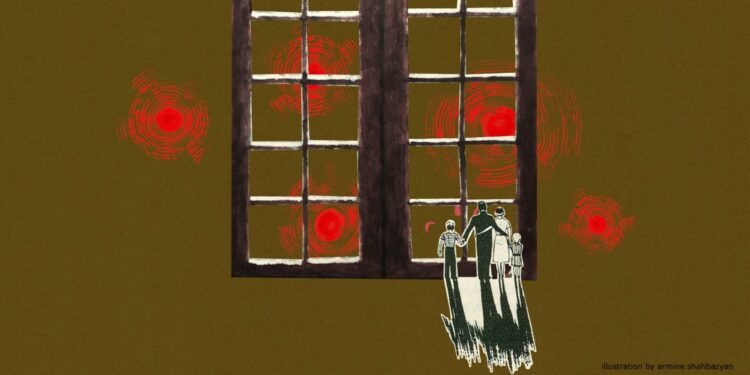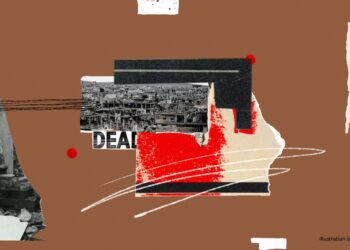Opinion
The Armenian Soul in Buenos Aires
Exploring the Armenian-Argentine experience, Tigran Yegavian asks whether a diaspora can sustain Armenianness without a homeland, reflecting on identity, disconnection, and the enduring spirit that binds a dispersed people across generations and continents.
Putting an End to “Celestial Armenia”
The enduring myth of “Celestial Armenia”, a spiritual, idealized vision rooted in religious doctrine, has long been manipulated by political and clerical elites and exploited by Russia, hindering the emergence of a sovereign, realistic Armenian state grounded in political responsibility and modern geopolitics.
Syria: Silence While Massacres Unfold
Since early March, horrific massacres targeting Alawite and Christian communities have unfolded in Syria’s coastal region. A government-imposed blackout has obscured the true death toll, while international indifference enables ongoing atrocities.
Sovereignty, Political Identity, Equidistance
In this comprehensive article, Zohrab Mnatsakanyan explores the fundamental principles of nation-state building and Armenia’s place in the complex global order. It aims to contribute to the ongoing national debate by defining the boundaries of a shared consensus while acknowledging diverse approaches to achieving national goals.
It Has to Be Said: Another Inflection Point
Azerbaijan’s trials of former Artsakh officials are a grotesque display of autocratic legalism: political theater masquerading as justice. With blatant procedural violations and no international oversight, these trials are a tool of humiliation, retribution and political coercion.
Beware the Wildcat: Labor Tensions in Kajaran
A wildcat strike has erupted in Kajaran, where over 2,000 miners and technicians at the Zangezur Copper-Molybdenum Combine demand better wages and conditions. This strike, the largest in decades, underscores Armenia’s weak worker protections, corporate power and the potential for broader social change.
Azerbaijan’s International Image-Making Strategies and Challenges
Azerbaijan leverages cultural diplomacy, sports, and economic branding to shape its international image. However, human rights abuses, authoritarianism and Armenophobia undermine its efforts, exposing contradictions in the country’s reputation-building strategies.
After the Velvet…
Despite the impossible security and geopolitical environment, the continuing sense of fragility and uncertainty, Armenia has made significant strides since the Velvet Revolution. However, if it is to succeed, it must transcend the politics of negation and fulfill the promise of an open future.
Assad’s Fall: A Wake-Up Call for Armenia to Carve Out a Place in the Region
The fall of Bashar al-Assad’s regime is reshaping Middle Eastern dynamics, underscoring Armenia’s need to rethink its regional strategy. Balancing pragmatism with principles, Armenia must leverage its strengths, recalibrate foreign policies, and foster resilience to navigate a volatile geopolitical landscape.
A Dark Future for the Armenians of Syria
Syria's political landscape is transforming at breathtaking speed and while historical opposition groups and countless refugees welcome this development, Armenians and other minorities face an uncertain future. From Yerevan's perspective, the urgent question now is how to organize the evacuation of our compatriots, leveraging support from the UN and diplomatic representations operating in Syria.












